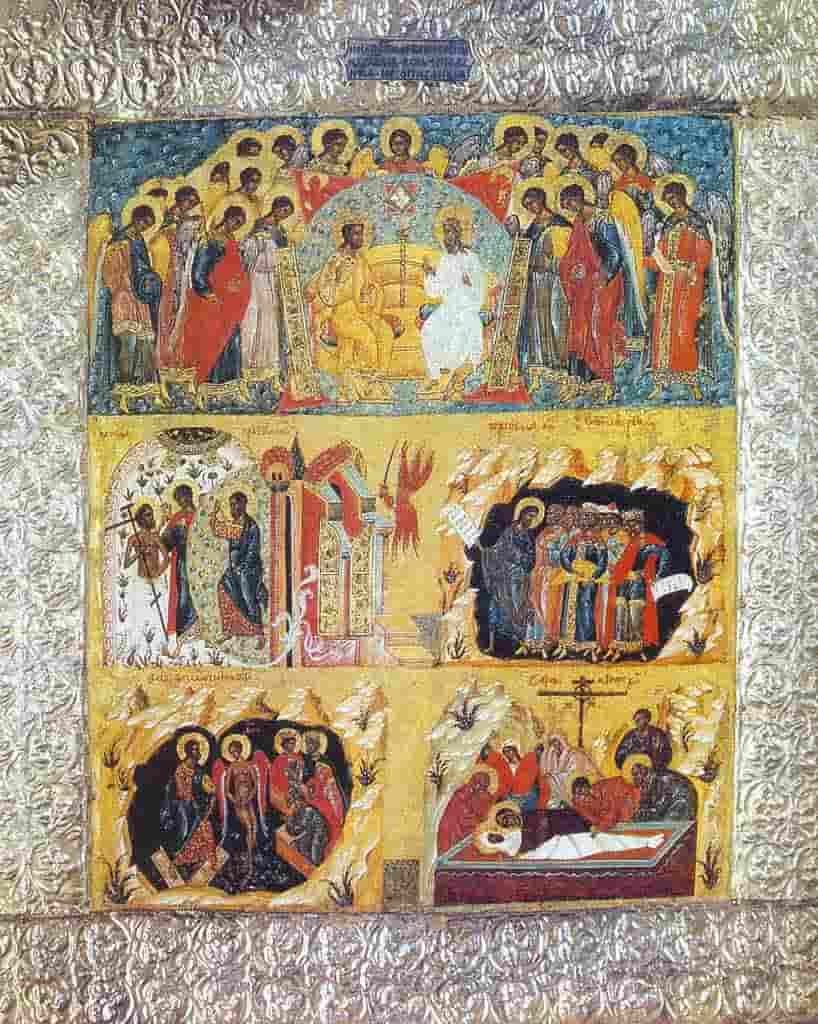The History of Easter in Christianity
For many, Easter marks the unofficial start of spring, but for Christians around the world, it is one of the most important celebrations of the year. What is the history of Easter and what are its origins ? An update on the history of Easter and its traditions…
Rooted in more than 2,000 years of rituals and rites, Easter commemorates the central event of the Christian faith: the resurrection of Jesus Christ, which Christians see as the fulfillment of Bible prophecy of a risen messiah from among the dead offering his disciples eternal life.
The celebration takes place at the end of Lent, a forty-day season of fasting and repentance in reference to the forty-day fasting of Jesus Christ in the desert. The lean period culminates with Holy Week and a commemoration of the biblical events surrounding the persecution, crucifixion and death of Jesus. Holy Week thus includes Palm Sunday, Maundy Thursday, Good Friday, Holy Saturday and Easter.
These episodes are described in the New Testament. Presented as both son of God and king of the Jews, Jesus of Nazareth gathered around him a devoted and growing number of disciples, witnesses of the miracles of which he was the author and of his mercy towards the most needy and the more marginalized.
But the growing popularity of Jesus soon earned him the animosity of the Roman authorities and religious extremists. This aversion reaches its climax when Jesus makes a triumphal entry into the city of Jerusalem, where he is greeted by a crowd laying palm fronds on his way (episode now celebrated on Palm Sunday).
Read also: Easter is the feast of the resurrection of Jesus Christ
Shortly after, during a meal with his disciples, later referred to as the Last Supper, Jesus predicts that one of his apostles will betray him and invites his disciples to share bread and wine in memory of him.
After dinner, Jesus is arrested. As Jesus had guessed, Judas Iscariot, one of his disciples, had decided to hand Jesus over to the Jewish high priests of the city in exchange for 30 pieces of silver (episode celebrated on Maundy Thursday).
Jesus is judged and beaten. Seeing that the mob has now turned against the young preacher, Pontius Pilate, the governor of the Roman province, agrees to condemn him to death. Jesus is then crucified, a sentence usually reserved for criminals. He dies and is buried (Good Friday) in a tomb where his body rests until the following day (Good Saturday).
But when his relatives, in mourning, come to pray at his tomb on Sundays, it is empty. Jesus is risen. He appears to the disciples, on the beach, as reported in the Gospel according to John, in chapter 21, verses 1 to 14. It is this episode which is celebrated at Easter.
Christians celebrate Easter in a variety of ways
Christians celebrate Easter in a variety of ways, including early morning services favored by Protestants and the Easter Vigil, an ancient liturgy and baptismal rite celebrated by Catholics on the night of Holy Saturday. Members of the Orthodox Church also celebrate Easter, but thirteen days later than other Christians, as their religion is based on the Julian calendar.
Over the years, Easter has converged with pagan celebrations of the arrival of spring. Popular traditions include a visit from the Easter Bunny, a representation of spring bringing eggs, a symbol of renewed life. One theory holds that this tradition originated in Germany. Either way, Easter egg hunts, egg decorating, and candy eating are always popular during Spring Break.
Easter Celebration: Commemorating the Resurrection of Jesus Christ
Name of Easter?
Easter comes from the Hebrew “Pesach”, the passage, which became pascha in Latin. Passover celebrates the Jewish people’s flight from Egypt and the crossing of the Red Sea. Passover is celebrated on the day of the spring full moon, 14 Nizan. However, according to the Gospels, it was on the eve of the Sabbath, during the preparation for Passover that the crucifixion of Jesus took place. His resurrection, three days later, is celebrated by the Christian feast, the Sunday following the spring full moon.
Jewish feast and Christian feast bear the same name, but have been said in the plural among Christians since the 16th century, to distinguish themselves from the Jewish feast and to evoke the passion, crucifixion and resurrection of Jesus.
Easter symbols and traditions
If at Easter it is customary to offer chocolate eggs today, this custom is still very new. Indeed, it wasn’t until the 19th century that chocolate eggs began to be offered on Easter Sunday. Until then, chicken eggs are offered to be painted red and decorated with a picture or motto. From the Renaissance, in the royal palace, chicken eggs were replaced by golden eggs.
Another symbol of this holiday: Easter bells. It is customary to tell children that it was the Easter bells that brought the chocolate eggs. And for good reason: in the 7th century, Easter history in the Church, to forbid ringing the bells between Maundy Thursday and Easter Sunday, in homage to the period between Jesus’ death and his resurrection. We then proceeded to say that during these few days, the bells left for Rome and then returned for Easter with the eggs they shared on the way. In the German and Anglo-Saxon countries, it is not the Easter bells that carry the eggs but the Easter bunny…
Finally, another Easter tradition: lamb, which is usually eaten on Easter Sunday. In Judaism, it is customary to sacrifice a lamb at Passover, to celebrate the deliverance of the Hebrew people. In Christianity, Jesus is associated with the lamb that was sacrificed because of His crucifixion to save people from their sins.
Sources: PinterPandai, Britannica, History, Christianity
Photo credit: Wikimedia Commons (Public Domain)
Photo description: Date: 17th century. Russian icon with 5 themes: The Holy Trinity of New Testament; Good Felon enters in Heaven; Adam, Eva and others follows Jesus from Hell to Heaven; Harrowing of Hell; Entombment of Christ.
Palm Sunday: Unveiling Its Spiritual Significance and Observances



